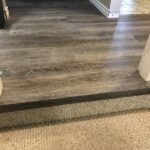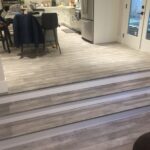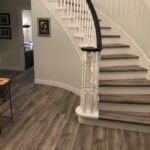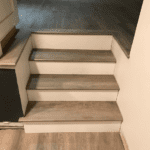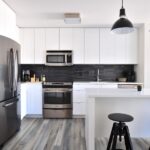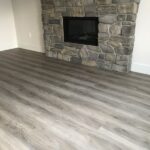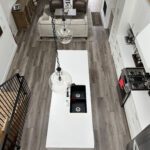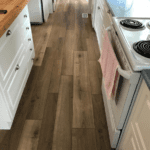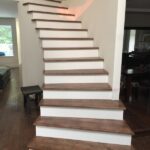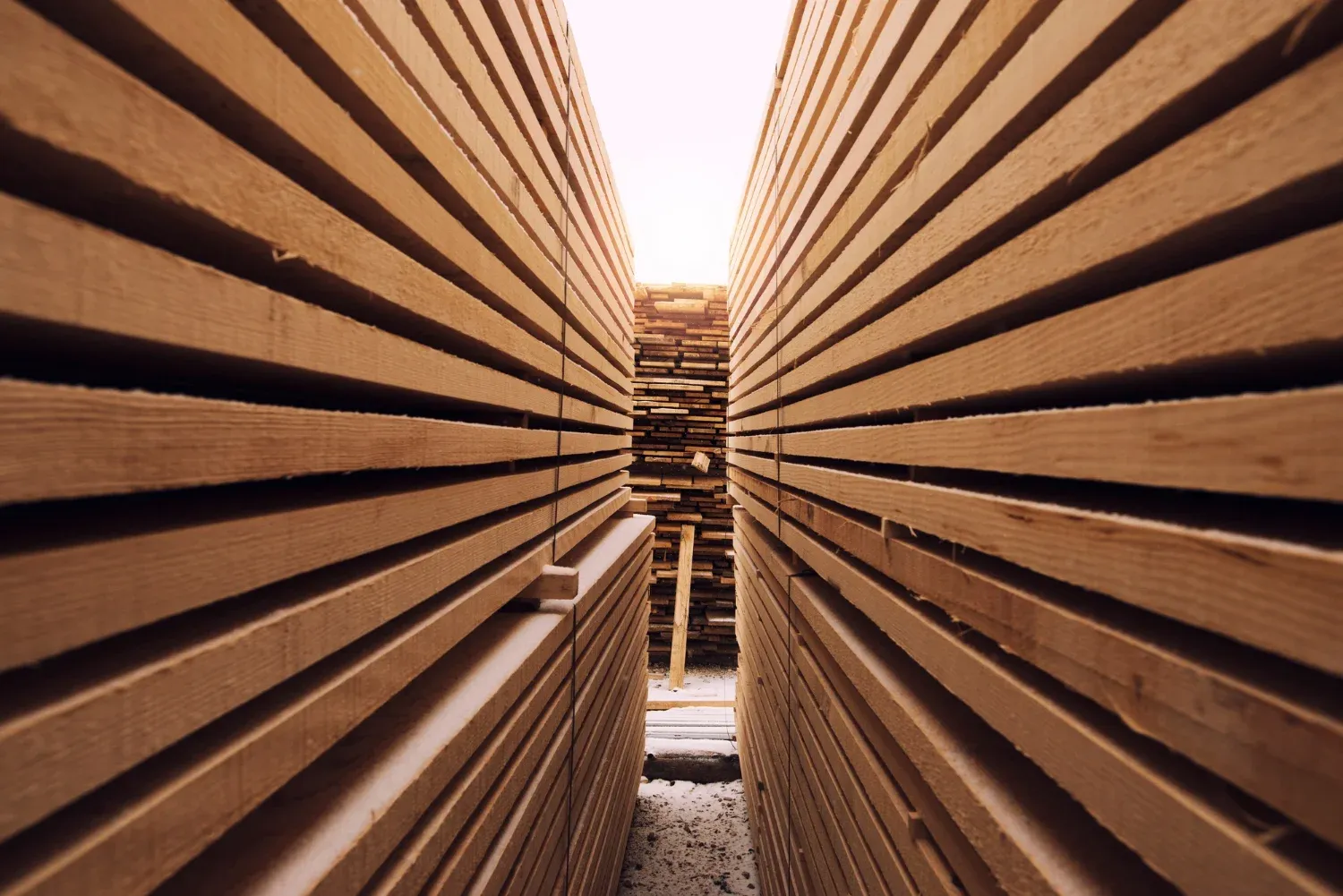When it comes to choosing the right flooring for your home, hardwood is often considered the gold standard. Its timeless beauty and durability make it a popular choice among homeowners. However, within the category of hardwood flooring, there are two main types to consider: engineered hardwood and solid hardwood. Both have their own unique features and benefits, but which one is the better option? In this flooring face-off, we’ll explore the differences between engineered hardwood vs. solid hardwood to help you make an informed decision for your next flooring project.
What is Engineered Hardwood Flooring?
Engineered hardwood flooring is a composite product made from multiple layers of wood. The top layer, also known as the veneer or lamella, is made from genuine hardwood, while the core layers consist of plywood, high-density fiberboard (HDF), or other materials. These layers are bonded together under heat and pressure, resulting in a sturdy and resilient flooring material.
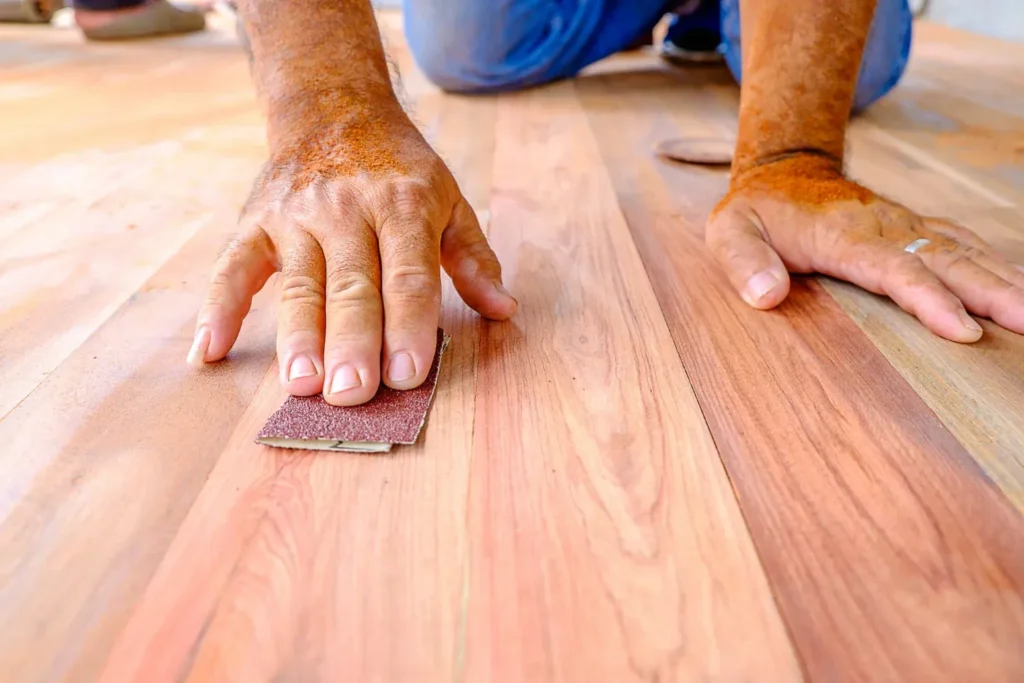
What is Solid Hardwood Flooring?
Solid hardwood flooring, on the other hand, is crafted from a single piece of solid wood, typically featuring tongue and groove edges. This classic flooring option offers an authentic and timeless appearance. It’s known for its longevity and the ability to be refinished multiple times, which can extend its lifespan.
Key Differences between Engineered Hardwood and Solid Hardwood:
Before making a decision, it’s essential to understand the key distinctions between these two types of hardwood flooring:
Construction:
Engineered Hardwood: Made of multiple layers, with a genuine hardwood veneer on top.
Solid Hardwood: Crafted from a single piece of solid wood.
Cost:
Engineered Hardwood: Generally more affordable than solid hardwood.
Solid Hardwood: Typically more expensive due to the use of solid wood.
Durability:
Engineered Hardwood: Offers good durability and stability.
Solid Hardwood: Its durability mainly depends upon the climate.
Water Resistance:
Engineered Hardwood: More water-resistant due to its multi-layered construction, making it suitable for areas prone to moisture.
Solid Hardwood: Prone to warping and damage in high-moisture environments.
Ease of Installation:
Engineered Hardwood: Easier to install, often available in click-and-lock or floating floor options.
Solid Hardwood: Typically requires professional installation and is more time-consuming.
Versatility:
Engineered Hardwood: Can be installed in various environments, including basements, where solid hardwood is not recommended.
Solid Hardwood: Best suited for above-grade areas and not recommended for spaces with high humidity.
Naturalness and Authenticity:
Engineered Hardwood: While it looks authentic, it may not have the exact feel and sound of solid hardwood.
Solid Hardwood: Offers the most authentic and traditional hardwood experience.
Refinishability:
Engineered Hardwood: Can be refinished a limited number of times due to the veneer’s thickness.
Solid Hardwood: Can be sanded and refinished multiple times, allowing for a fresh appearance over the years.
Lifespan:
Engineered Hardwood: Has a decent lifespan, but not as long as solid hardwood.
Solid Hardwood: Known to last for decades or even a century with proper care.
Home Value:
Engineered Hardwood: Adds value to your home, though not as much as solid hardwood.
Solid Hardwood: Significantly increases the value of your property due to its durability and classic appeal.
Benefits of Engineered Hardwood vs. Solid Hardwood
When it comes to hardwood flooring, there’s often a debate between engineered hardwood and solid hardwood. Both options have their unique advantages, and understanding them can help you make an informed choice for your home. In this section, we’ll explore the benefits of each type of hardwood flooring.
Benefits of Engineered Hardwood:
More Affordable:
One of the standout advantages of engineered hardwood is its affordability. If you desire the look and feel of genuine hardwood without breaking the bank, engineered hardwood is the way to go. The construction of engineered hardwood, with its top layer of genuine wood and supportive core layers, results in a cost-effective option that doesn’t compromise on quality.
More Durable:
Engineered hardwood boasts remarkable durability. Its layered construction makes it less prone to expansion and contraction due to changes in humidity, making it suitable for regions with fluctuating climates. This stability prevents common issues like warping and cracking that solid hardwood may experience under similar conditions.
More Water-Resistant:
One significant advantage of engineered hardwood is its enhanced water resistance. The multi-layered structure provides a degree of protection against moisture, making it a suitable choice for areas prone to spills, like kitchens or bathrooms. This water-resistant feature can help prevent the damage and swelling that solid hardwood may suffer when exposed to moisture.
Easier to Install:
Engineered hardwood is renowned for its ease of installation. Many engineered hardwood products are available in click-and-lock or floating floor options, making it a viable choice for DIY enthusiasts. Solid hardwood, in contrast, often requires professional installation, which can add to the overall cost and time of your flooring project.
More Versatile:
Engineered hardwood offers versatility in terms of installation. It can be placed in various environments, including below-grade areas like basements, where solid hardwood isn’t recommended due to moisture concerns. Its adaptability allows you to enjoy the beauty of hardwood throughout your home, regardless of the room’s location.
Benefits of Solid Hardwood:
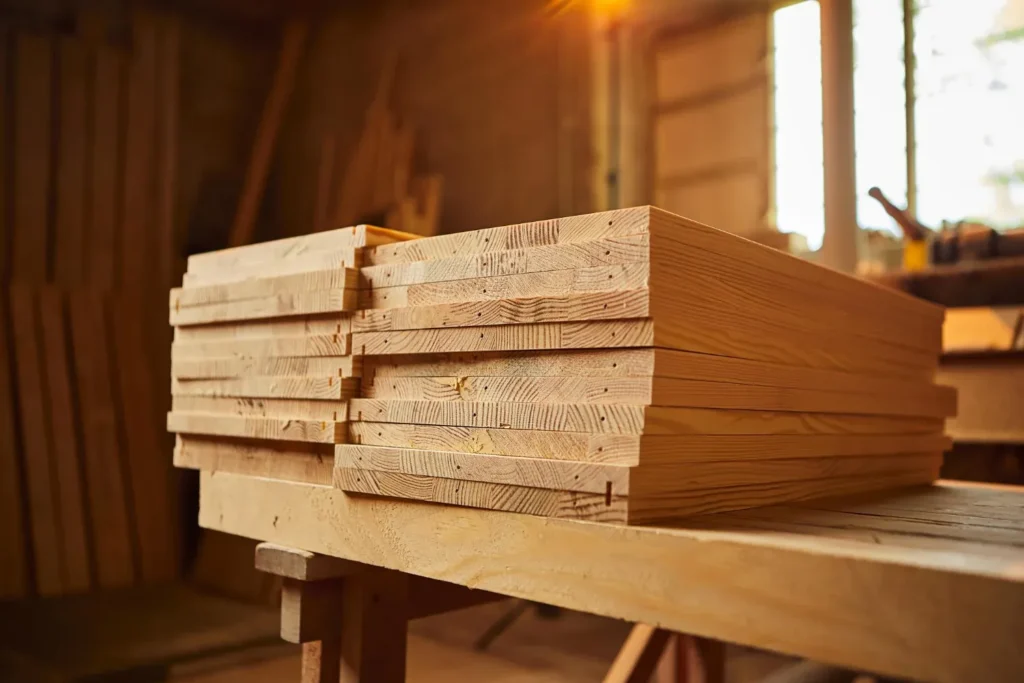
More Natural and Authentic:
Solid hardwood is cherished for its unparalleled authenticity. It provides the most genuine hardwood experience with the rich, organic look and feel of solid wood. The natural beauty and warmth it adds to a space are unrivaled, making it an excellent choice for those who appreciate the classic hardwood aesthetic.
Can Be Refinished Multiple Times:
One of the standout features of solid hardwood is its ability to be refinished multiple times. This characteristic allows you to refresh your flooring’s appearance and extend its lifespan. As the years go by, you can sand down the surface and apply a new finish, effectively giving your floors a like-new look.
Increases the Value of Your Home:
Installing solid hardwood flooring can significantly increase the value of your home. Its timeless appeal and reputation for quality make it an attractive feature for potential buyers. A home with solid hardwood flooring often commands a higher resale value, making it a wise investment in both the short and long term.
Comparing Engineered Hardwood and Solid Hardwood:
Let’s make a side-by-side comparison of these two options to help you make an informed decision:
| Aspect | Engineered Hardwood | Solid Hardwood |
| Cost | More affordable | Typically more expensive |
| Durability | Good stability | Less durability |
| Water Resistance | More resistant to moisture | Prone to moisture damage |
| Ease of Installation | Easier installation | Professional installation required |
| Versatility | Suitable for various environments | Limited to above-grade areas |
| Naturalness and Authenticity | Authentic appearance | Offers the most traditional experience |
| Refinishability | Limited refinishing options | Multiple refinishing opportunities |
| Lifespan | Decent lifespan | Long-lasting for decades |
| Home Value | Adds value to your home | Significant value addition |
Choosing the Right Hardwood Flooring
Selecting the right hardwood flooring for your home involves a few key considerations. Let’s delve into these factors to help you make the best choice:
Budget:
Your budget is a crucial factor in your decision. If cost is a concern, engineered hardwood is a cost-effective option. It offers the elegance of hardwood at a more affordable price point. In contrast, solid hardwood is typically pricier due to its genuine wood composition. Consider your financial constraints when making your decision.
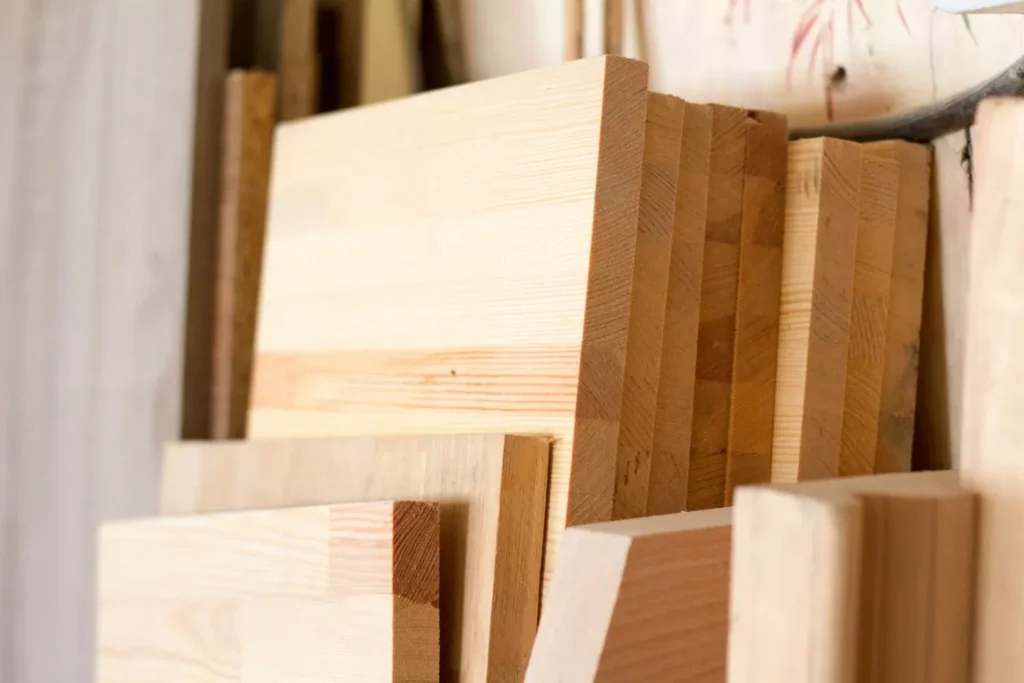
Home Style:
Consider the style of your home. Solid hardwood is ideal for traditional and classic interior designs, providing a timeless and authentic look. Engineered hardwood, on the other hand, is versatile and suits a range of design aesthetics, from modern to rustic. Your home’s style will help guide your choice.
Color and Pattern:
Hardwood flooring comes in a variety of finishes, colors, and patterns. Choose a style that complements your decor and resonates with your personal taste. Both engineered and solid hardwood offer a wide range of options, so you can find the perfect match for your home.
Subfloor Compatibility:
Check your subfloor type. Engineered hardwood is more adaptable, making it suitable for installation over concrete subfloors. This flexibility is essential for areas like basements. Solid hardwood, on the other hand, typically requires a wooden subfloor, limiting its use to above-grade spaces.
When to Choose Engineered Hardwood
You’re on a Budget: Engineered hardwood provides a balance between cost and quality.
You Live in a Humid Climate: Its water resistance makes it suitable for high-moisture areas.
You Have Pets or Children: The durability and easy maintenance of engineered hardwood can handle the wear and tear of active households.
You Want a Low-Maintenance Flooring Option: Engineered hardwood is easier to clean and maintain.
You Want a Versatile Flooring Option: It can be installed in any room of your home, including basements.
When to Choose Solid Hardwood
You Want the Most Natural and Authentic Hardwood Flooring: Solid hardwood offers the traditional hardwood experience.
You Want Hardwood Flooring That Can Be Refinished Multiple Times: This is a long-term investment that can be refreshed as needed.
You Want Hardwood Flooring That Will Last for Decades: Solid hardwood can withstand the test of time in favorable weather conditions.
You Want Hardwood Flooring That Will Increase the Value of Your Home: It’s a high-value addition to your property.
Final Thoughts
The choice between engineered hardwood and solid hardwood comes down to budget, style, and practical needs. Engineered hardwood offers affordability and versatility, while solid hardwood boasts natural beauty and longevity. Consider your unique circumstances to make the best choice for your home, knowing that either option will bring timeless elegance to your space.
